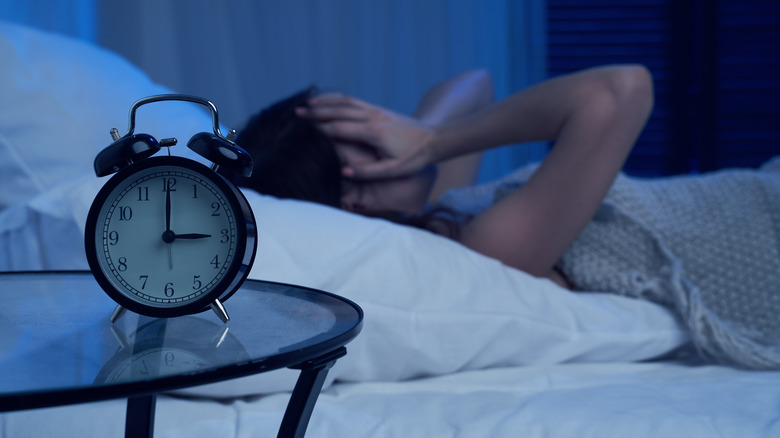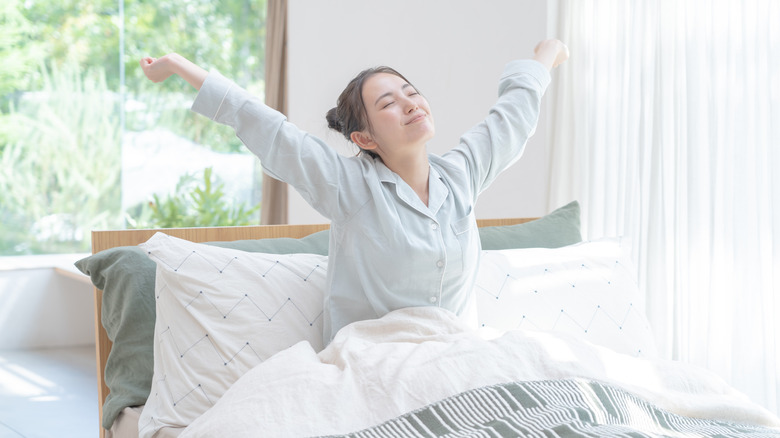Nearly 55% Of People Are Getting This Much Sleep Per Night
There are only so many hours in a day: Between balancing your career and your relationships, maintaining your health, and trying not to kill your houseplants, you might find yourself lucky to get even a few hours of shut-eye before your morning alarm. Whether you're working overtime to earn that promotion or your social calendar is completely booked, sleep often falls low on the list of priorities. But maintaining healthy sleeping habits is one of the most important acts of self-care. According to the CDC, "Getting enough sleep is not a luxury — it is something people need for good health." The Sleep Foundation reports that getting good sleep can lead to an improved mood and stress relief while regulating your blood sugar, heart health, as well as your immune system.
With so many people feeling tired all the time and experiencing severe burnout, we wondered: how long are people actually sleeping? A survey conducted by The List asked 573 people, "How many hours of sleep do you typically get each night?" The results have us wondering when we last had a good night's sleep.
7 (hours) is the magic number when it comes to sleep
The American Academy of Sleep Medicine and the Sleep Research Society recommend seven hours of sleep per night for adults to be fully rested and receive all the health benefits of a good night's sleep. According to The List's survey, over half of people achieve the recommended amount of sleep, with nearly 55% saying they receive an average of six to seven hours of sleep each night. 23.39% of people reported receiving eight to nine hours of sleep, and 2.62% said they clock in 10 or more hours. On the opposite side of the spectrum, 16% of people said they sleep between four to five hours each night, and a poorly-rested 2.97% said they sleep less than four hours.
For nearly 20% of people who do not achieve the recommended hours of sleep, not all hope is lost. With the help of sleep doctors and specialists, we have found tips and tricks to improve your sleeping habits and achieve longer and more restful sleep each night.
How to get better, more restful sleep
Whether you're battling the Sunday scaries or you just can't get comfortable in your bed, poor sleeping habits are super common. According to The Sleep Foundation, even people who rest for the recommended amount of time may not get the best quality of sleep, which can negatively impact your health: you may be having trouble falling asleep, waking up frequently during the night, or feeling exhausted the next morning even after a full night's rest.
The Mayo Clinic recommends keeping a routine sleep schedule: try to go to bed and wake up at the same time each night, getting between seven and eight hours of sleep per night, no more and no less. They also suggest creating a "cool, dark and quiet" environment that promotes restful sleep. If your bedroom is too noisy or too bright at night, try investing in comfortable earplugs or blackout curtains. Taking time to relax before bed is another helpful practice: activities like meditating, taking a bath, listening to calming music, and doing a quiet activity like reading have proven beneficial for people with sleep problems (Via Healthline). If you continue to have trouble sleeping, don't be shy about seeking proper treatment from your healthcare provider.
So, next time you're about to pull an all-nighter to meet that deadline at work, remember that sleep is one of the most important things we can do for our physical and mental health, and they'll just have to wait until morning.


